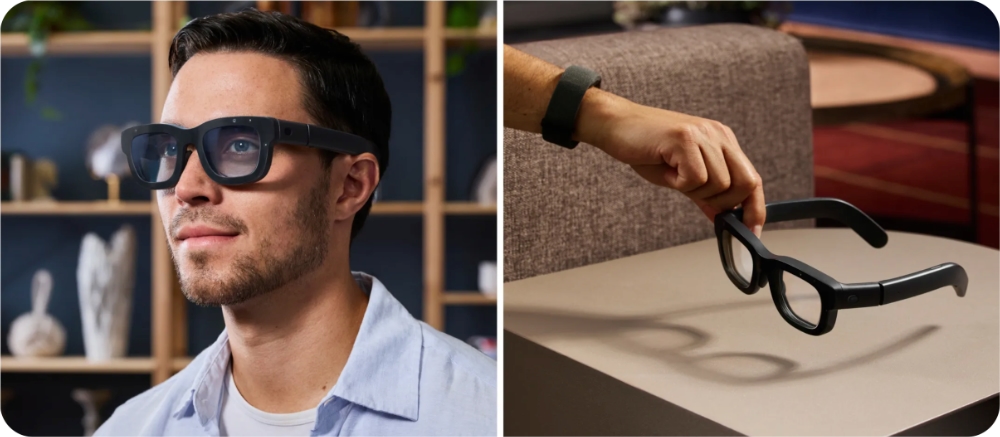Apple Is Already Working on a Custom Chip for Its Smart Glasses
 Juliana Valkovskaya / Adobe Stock
Juliana Valkovskaya / Adobe Stock
Toggle Dark Mode
Rumors of the demise of Apple’s Smart Glasses may have been premature. Not only does the company still plan to release a pair of smart glasses to compete with Meta’s Ray-Ban specs, but a new report suggests it’s actively working on the chips that will power these new devices.
That’s the word from Bloomberg’s Mark Gurman, who reported yesterday that its silicon design group — the same team that came up with the M-series chips that power its iPads, Macs, and Vision Pro — is working on a specialized chip designed for smart glasses.
The new chip doesn’t have a designation yet (that we know of), but it’s reportedly similar to the S-series chips that power the Apple Watch. The key is to use as little energy as possible since Apple doesn’t want to pack a bulky battery into its Smart Glasses, much less require users to carry an external battery as it does with the Vision Pro.
Apple is building the chip lean and mean, removing as many unnecessary components as possible to improve power efficiency and focusing on essential tasks like controlling the multiple cameras in the glasses.
This is perhaps the biggest revelation that Apple’s Smart Glasses are more than just a concept project. Processor design and testing take a lot of time, but the company hopes to begin mass production of chips by early 2027. Since this chip will be designed exclusively for the Smart Glasses, it suggests we’ll see the spectacles debut around that time.
To be clear, these will be far from the mythic Apple Glass that we’ve heard rumored for years, but that’s not to say those aren’t coming someday. If anything, these Smart Glasses are simply the first step in Apple’s journey toward its much more ambitious vision for a set of true augmented reality (AR) glasses.
In fact, Apple CEO Tim Cook is reportedly ‘hell-bent’ on creating Apple Glasses. It’s been his “grand vision” for at least a decade, and sources say he “cares about nothing else” right now. However, even though Apple has been working on AR glasses for more than seven years, they’re a nut the company hasn’t been able to crack. The technology isn’t there yet to build them, at least not at a price that would be affordable enough to bother.
Insiders say that Cook is determined to get its true AR glasses on the market before Meta can. The social media company has already beat Apple to the punch for smart glasses, and it’s determined not to let that happen when it comes to its ultimate vision for Apple Glass.
In one sense, Apple has its work cut out for it. Meta has already unveiled its own promise for true AR glasses with Orion. These are little more than prototypes right now, but they’re still something tangible for the company to show off to developers, customers, and investors.
Meta hopes to launch a consumer version of these by the end of 2027, but it may be dreaming in technicolor. They currently cost $10,000 just to build, and developer units won’t be available until next year. They’re also kind of ugly. Meta will have its work cut out for it, getting the design and costs to a level that the average person will want to spend money on, especially in today’s economy.
Still, if Cook wants to beat Meta to market, Apple will have to do more than produce a set of smart glasses that are more or less just its own take on rival products. Gurman’s sources say that Apple is now working on AR glasses in parallel with the non-AR smart glasses under the same project, codenamed N401. That’s a shift from the shelved N421 of the original Apple Glass and the more recent N50 of the smart glasses.
Apple is also covering all bases when it comes to camera-equipped AI devices. Alongside the glasses chip, Apple is developing a chip for a camera-equipped Apple Watch dubbed “Nevis” and a new chip called “Glennie” to be included in camera-laden AirPods. While these alternatives are partly a backup plan to the smart glasses, Apple ultimately wants to offer AI-powered smart devices for all walks of life, so those who don’t want to wear smart glasses can still benefit from these new capabilities in other ways.
[The information provided in this article has NOT been confirmed by Apple and may be speculation. Provided details may not be factual. Take all rumors, tech or otherwise, with a grain of salt.]









